Filter by
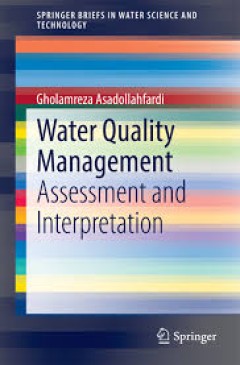
Water Quality Management Assessment and Interpretation
Considering the significance of water quality for drinking, irrigation and industry, availability of accurate and sufficient water quality data is necessary and having enough data without proper interpretation is not helpful for water quality management decisions. Hence, analysis of the existing data and prediction of future of water quality is vital. The current volume first defines the imp…
- Edition
- -
- ISBN/ISSN
- 978-3-662-44725-3
- Collation
- -
- Series Title
- -
- Call Number
- -
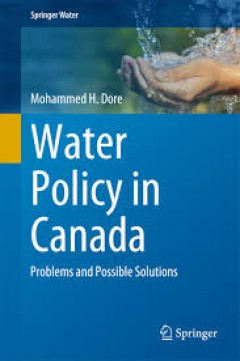
Water Policy in Canada Problems and Possible Solutions
This book deals with the water policy and management in Canada. It discusses various problems and risks in the fresh and drinking water supply in the second largest country in the world. Mohammed Dore argues that water is underpriced and used wastefully in Canada. In selected case studies, he illustrates the major threats from human activity to Canadian freshwaters and drinking water resources,…
- Edition
- -
- ISBN/ISSN
- 978-3-319-15883-9
- Collation
- -
- Series Title
- -
- Call Number
- -
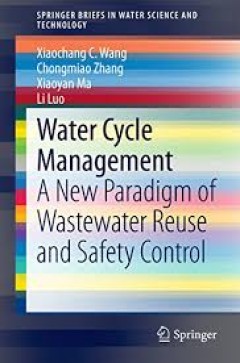
Water Cycle Management A New Paradigm of Wastewater Reuse and Safety Control
This book focuses on environmental engineering, and on wastewater treatment and reuse in particular, which is a vital aspect for countries and regions suffering from water shortages. It introduces a new water cycle management concept for designing water systems that mimic the hydrological cycle, where reclaimed water is produced, stored/regulated, supplied and used in a semi-natural manner so t…
- Edition
- -
- ISBN/ISSN
- 978-3-662-45821-1
- Collation
- -
- Series Title
- -
- Call Number
- -
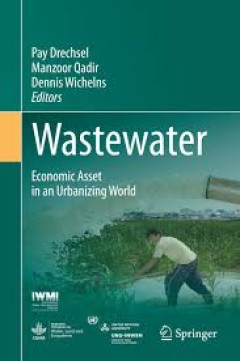
Wastewater Economic Asset in an Urbanizing World
The books provides a timely analysis in support of a paradigm shift in the field of wastewater management, from ‘treatment for disposal’ to ‘treatment for reuse’ by offering a variety of value propositions for water, nutrient and energy recovery which can support cost savings, cost recovery, and profits, in a sector that traditionally relies on public funding. The book provides new insi…
- Edition
- -
- ISBN/ISSN
- 978-94-017-9545-6
- Collation
- -
- Series Title
- -
- Call Number
- -
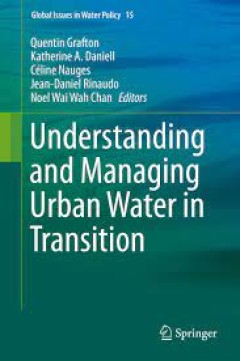
Understanding and Managing Urban Water in Transition
This book examines changes and transitions in the way water is managed in urban environments. This book originated from a joint French-Australian initiative on water and land management held in Montpellier, France. The book delivers practical insights into urban water management. It links scientific insights of researchers with the practical experiences of urban water practitioners to understan…
- Edition
- -
- ISBN/ISSN
- 978-94-017-9801-3
- Collation
- -
- Series Title
- -
- Call Number
- -

Toxic Pollutants in China Study of Water Quality Criteria
The book presents some of the findings of research into China’s water quality criteria for toxic pollutants, including heavy metals, PAHs and emerging pollutant. Water quality criteria (WQC) are the scientific basis for establishing water quality standards (WQSs). For a long time, the study of WQC in China has been neglected, so that almost all of China’s WQSs were developed based on foreig…
- Edition
- -
- ISBN/ISSN
- 978-94-017-9795-5
- Collation
- -
- Series Title
- -
- Call Number
- -
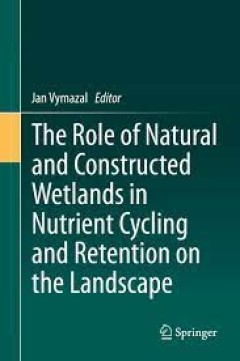
The Role of Natural and Constructed Wetlands in Nutrient Cycling and Retentio…
Natural and constructed wetlands play a very important role on the landscape and their ecological services are highly valuable. In fact, some wetland types are regarded as one of the most valuable ecosystems on the Earth. Water management, including flood water retention, biomass production, carbon sequestration, wastewater treatment and biodiversity sources, are among the most important ecolog…
- Edition
- -
- ISBN/ISSN
- 978-3-319-08177-9
- Collation
- -
- Series Title
- -
- Call Number
- -
 Computer Science, Information & General Works
Computer Science, Information & General Works  Philosophy & Psychology
Philosophy & Psychology  Religion
Religion  Social Sciences
Social Sciences  Language
Language  Pure Science
Pure Science  Applied Sciences
Applied Sciences  Art & Recreation
Art & Recreation  Literature
Literature  History & Geography
History & Geography